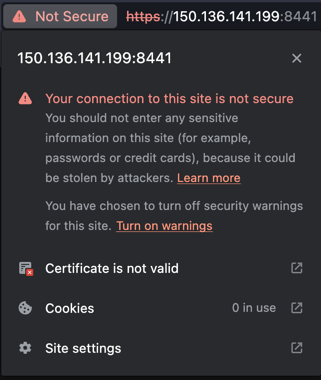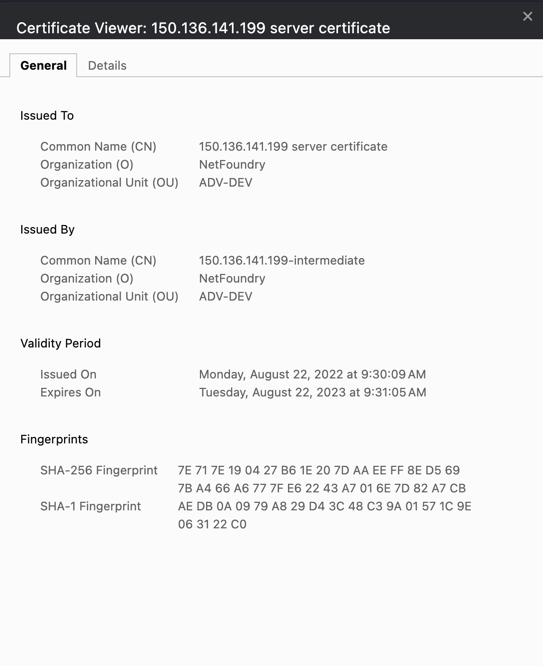Expired Certs
The following are examples of how an invalid server cert will present itself on a running OpenZiti Network. There are certs for the edge API and the control plane, so it's important to check for both as they will likely share the same expiry date.
Behavior
An expired cert will manifest behavior in a few expected ways.
- From an edge client or tunneler, an identity will show as
unavailable. Reviewing the logs will generally indicate some sort of certificate error. Something along the lines offailed to verify certificate,certificate has expired, or something mentioning an error relating tox509 - From a browser, if you attempt to access your controller, for example, by visiting
https://controller-ip:1234/edge/client/v1/versionyou may see an indication of a certificate error from the browser. Ultimately, the controller is not accessible despite being online.

- From the
zitiCLI, if you attempt to log into the controller you will get an error to the effect ofcertificate is expired or invalid,unable to retrieve certificate authority, orbad certificate - Viewing the controller logs, you may see errors similar to
TLS handshake error,bad certificate, orcertificate failure.
Verification
The following commands are useful in viewing the status of the current certs for the control and edge/API planes.
Substitute the address and port as necessary.
# Example for edge/API plane
openssl s_client -connect 150.136.141.199:8441 | grep "NotBefore"
# Example for control plane
openssl s_client -connect localhost:6262 | grep "NotBefore"
Example Output
As shown, the start and end dates for all certificates in the chain will be displayed.
v:NotBefore: Sep 12 13:36:59 2023 GMT; NotAfter: Sep 11 13:37:55 2024 GMT
v:NotBefore: Aug 22 13:29:51 2022 GMT; NotAfter: Aug 19 13:30:41 2032 GMT
Resolution
If you determine that your certs have expired. Check out the Renew Client/Server Certs guide.